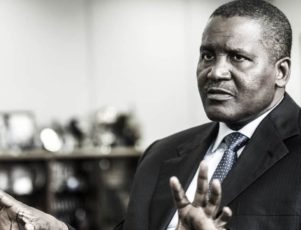Aliko Dangote is Africa’s richest man. Valued at $17.4billion, this Nigerian magnate is the 67th richest billionaire in the world, one of an elite circle of fabulously wealthy individuals who have made their fortunes in the poorest region of the world. Thirty years ago, Dangote received a loan from his uncle, which he used to break into commodity trading. In the intervening decades, 54-year-old Dangote has managed to build a multinational trading empire.
Bernard Dunn – the new President of Boeing Middle East
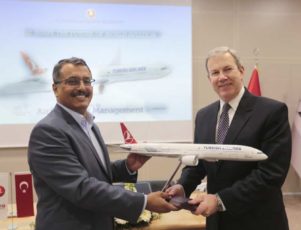
On May 20, 2015 The Boeing Company named Bernard Dunn the new president of Middle East Division. He succeeded Jeff Johnson who moved to the US in March 2015 to become a vice president of business development at Boeing Military Aircraft.
Dunn is now in charge for fulfilment of Boeing’s strategy towards Middle East and the company’s business development in Middle East region. He is responsible for GR, partnership development, expanding Boeing presence and improving company relationships with customers and shareholders. He will cooperate with the President of Boeing Saudi Arabia Ahmed Jazzaar.
26 Countries, $1 trillion USD and 600 million people: The World’s Newest (and Biggest) Free Trade Bloc
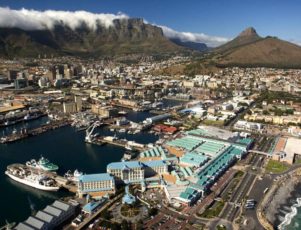
In June, the world’s largest free trade block was signed into existence in perhaps the world’s least likely place: Africa.
Three existing African economic blocks, the Common Market for Eastern and Southern Africa (COMESA), the Southern African Development Community (SADC) and the East African Community (EAC), have formed a 26-state free trade block stretching from Cairo to Cape Town. The goal of this enormous free trade zone is to increase the amount of intra-African trade. Currently, the poor quality of roads, railways and unreliable nature of airlines have inhibited trade across the continent.
Dambisa Moyo – Macroeconomist, Author and International Affairs Expert

As an internationally renowned economist and author, Dambisa Moyo has analyzed the many aspect of macroeconomics and global current affairs, with focus on developing economies, market trends and finance, earning herself a position as one of the most respected people of our generation.
Ms. Moyo was born on September 15, 1969 in Lusaka, Zambia, but spent a fair portion of her childhood in the United States while her father completed a postgraduate degree, after which they returned to Zambia. Her father ended up with a career in an academic setting as well as public administration and her mother, with a career as chairwoman at a bank. The success of Dambisa’s parents had set her up with opportunity for her future education and career. She began a chemistry degree at the University of Zambia, however, chose to complete it back in the United States. This was done at American University in Washington, D.C., followed by a Master’s degree in business administration. She went on to obtain a second Master’s degree in public administration from Harvard, as well as a Ph.D. in economics from Oxford, with her thesis on savings- “Why Is It That Some Countries Save and Others Not?” Her interest and expertise lie in a number of fields which include, but certainly are not limited to, business strategy, economic modeling, foreign direct investment, unemployment, commodity supply, currency wars, public markets, U.S. fiscal policies, oil and trade.
Low Oil Prices Raise Concerns over Middle Eastern Sovereign Investments
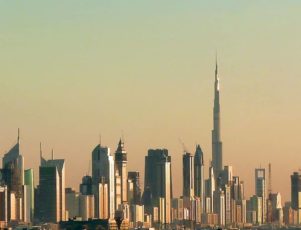
After years of increasing allocations to sovereign wealth funds (SWF), the persisting decline in oil prices has led regional fund managers to prepare for major changes.
As Middle Eastern governments became more dependent on the influx of foreign currency from oil sales, SWFs were set up as an insurance policy against potential decreased revenue streams.
Derived from surpluses in reserves, SWFs provide a means of reallocating income into other investments in order to diversify the country’s revenue. Should funding decline, these investments could be sold on short notice to support economic growth.
Building the Foundation of Trust from Below: Amine Mazouzi’s New Position as CEO of Sonatrach
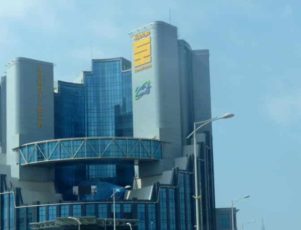
Amine Mazouzi is one of those lucky individuals for whom changes in large Algerian companies are most beneficial. Mazouzi has recently been named CEO of Sonatrach, Algeria’s state-owned oil and gas company, which operates more than 10,000 gas stations across Algeria and produces 90% of the country’s hydrocarbons. Mazouzi’s new position does not, however, come without complications.
Mohammed Dewji : Visionary and Leader
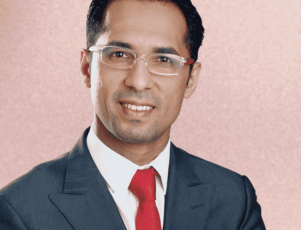
As Billionaire Businessman and Political Philanthropist, Mohammed Dewji, Shows Us Hard Work Does Pay, and He Pays it Forward.
Mohammed Dewji is considered to be one of the most successful and accomplished people in Africa today. He is the Chief Executive Officer of Mohammed Enterprises Tanzania Limited Group (METL), a company started by his father, which has an extremely diversified presence in Tanzanian industries. Mr. Dewji owns 75% of the group and has a current net worth of $1.25 billion, according to Forbes. His passion for politics has landed him a seat in local government, which he uses to implement his vision and ideas for a better Tanzania. This position, along with his financial success has allowed him to build a foundation for philanthropic action in the areas of education, health and clean water.
(more…)
Nigeria’s New President Inherits a Country Without its Black Gold
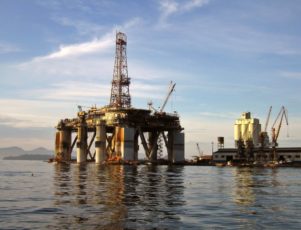
Paralyzed by gasoline shortages, Nigerian authorities appear close to reaching a solution. The crisis began in early March, weeks before the 29 March election that elected Muhammadu Buhari as Goodluck Jonathan’s replacement. Nigeria has long paid oil importers subsidies to control price and guarantee a steady supply. That, however, no longer seems to be working.
Oil suppliers’ credit lines were tightened amid the falling global price of oil, a slump in Nigeria’s currency, the naira, and the unpaid debt by the former President’s government. Suppliers claim that more than 900 million euros are owed in back-payments of government subsidies.
Nigeria’s new president vows to fight endemic corruption
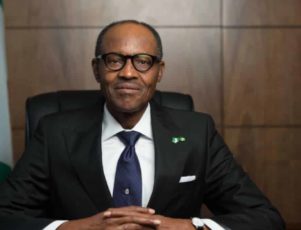
Along with security and unemployment, Nigeria’s new president Muhammadu Buhari, has declared corruption as one of the top three challenges he plans to tackle during his term.
The 72-year-old former military ruler took office on 29 May after defeating incumbent Goodluck Jonathan in the race to run a country struggling with a waning economy, endemic corruption, rampant unemployment, and the on-going security threat from Boko Haram.
Twitter Presence and Influence of African Leaders
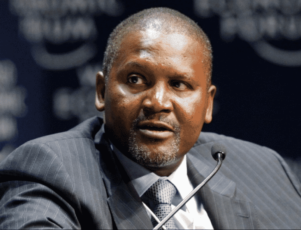
“Twitter has proven to be a revolutionary social network even in politics. It is an extraordinary channel of diplomacy and of communication.” – Federica Mogherini, High Representative of the EU for Foreign Affairs and Security Policy.
Over the past eight years, the Twittersphere has expanded to incorporate mass amounts of people from all facets of the political spectrum, all over the world. A recent study under the name of Twiplomacy has amalgamated data from Twitter to categorically display political participation within the social platform. This initiative was put forth by an American agency called Burson-Marsteller, who has gathered data from the 669 Twitter accounts of government members, including world leaders, heads of states, foreign ministers, as well as public institutions in 166 countries. They used 60 variables, including the number of mutual peer connections, number of followers, number of retweets, appearance on Twitter lists, tweets per day, percentage of @replies, and the year world leaders signed up to Twitter.

